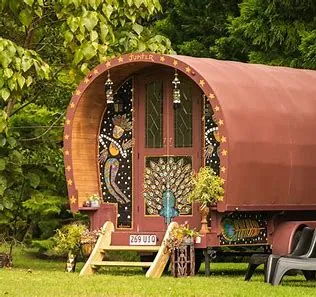 October 22, 2022
October 22, 2022
Gypsy, Roma & Traveller Women
The Barriers to accessing support.
In June, every year since 2008, people from across the UK celebrate Gypsy, Roma and Traveller History Month. This yearly event is crucial in raising awareness and tackling myths and prejudices in relation to this community. But we should be raising awareness all year round!
There are around 300,000 Gypsies and Travellers living in the UK. It is important to note that Travellers are not all the same. They are individual communities. Gypsies, Roma and Travellers of Irish Heritage are identified as racial groups and are covered by the Race Relations Act as legitimate minority ethnic communities.
As many of you will know, my day job is at The National Centre for Domestic Violence (NCDV) which is a free, fast emergency injunction service for victims and survivors of domestic abuse regardless of their financial circumstances, race, gender or sexual orientation. NCDV is fully inclusive and offers its services to everyone, regardless of gender, age, ethnicity, socio-economic status, sexuality or background, and although we take many referrals from the Gypsy and Roma Traveller communities, we know that our service is only the tip of the iceberg in relation to the support and advice they need when escaping a domestically abusive relationship.
I have been a member of The Traveller Movement’s Steering Group for their Domestic Abuse and Women’s work since its inception in 2021. The group has insight and a critical friend role and most importantly is a forum where everyone can share insight, collaborate on projects and network to raise awareness of the Gypsy, Roma Traveller community which is vital in dispelling the myths and prejudices that exist for these people.
Domestic Abuse is a significant health issue in these communities. Although a lot of abusive incidents are perpetrated by husbands and intimate partners, it is not uncommon for family members to also perpetrate the abuse. Gypsy and Traveller women are far less likely to report incidents of abuse. The reason for this ranges from them having poor literacy and education to distrust of the police, social services and other mainstream authorities. The isolated nature of these communities means that there is a lack of support for survivors of domestic abuse. The Gypsy and Traveller communities are a vulnerable part of our society who face discrimination on an individual, institutional and societal level.
We know that 66% of Domestic Abuse Practitioners don’t know how to engage with Gypsy, Roma, and Traveller survivors. Barriers for these communities can include loss of community, fear of living in a house, although over 70% do live in bricks and mortar, and lack of knowledge of mainstream services that can help. Gypsy and Traveller women often have large numbers of children which means it’s difficult for them to be accepted into refuge spaces as refuges are often not able to accommodate large families. When a woman does decide to leave her abusive husband or partner, she is also often leaving her community and family too.
Professionals must do more as there is a lack of understanding by those in front-line services in relation to culture and barriers for these women. Traveller Movement has published a ‘Good Practise Guide’ which can be accessed through the link. Research has found that many GP’s will not accept Gypsy and Travellers onto their practise lists, which further isolates these women from seeking help.
Traveller Movement offers domestic abuse awareness training for professionals. This includes watching their unreleased film ‘Never Going to Beat You’ which has been created from the stories of 18 Gypsy and Traveller survivors. You can watch the trailer here. Once the film is watched, participants join an online training that is co-delivered with survivors from the community who explain their support needs in their own words.
We all need to play our part in making sure these marginalised communities are recognised, listened to and treated fairly, especially when they are experiencing domestic abuse and reaching out for help.

